
by Bob Smietana, RNS | Mar 3, 2022 | Commentary, Headline News |

(RNS) — At the top of the website for the Ukrainian Orthodox Church of the USA is a simple, three-word message.
“Pray for Ukraine!”
“May God hear our loving petitions and soften the hearts and minds of all, those within and outside Ukraine, during these dangerous times,” wrote the UOC’s Council of Bishops, in a statement responding to news of the Russian invasion this week.
The bishops of the UOC, founded by immigrants, were among a host of religious leaders asking God to intervene on behalf of Ukraine. The prayers asked for an end of hostilities and for the protection of civilians — and in at least one case, for a defeat of Russian forces.
“Send your heavenly legions, O Lord, commanded by the patron of Kyiv, Archangel Michael, to crush the desires of the aggressor whose desire is to eradicate our people,” the UOC bishops wrote in an online prayer.
Calls for peace also echoed from the Russian Orthodox Cathedral in Washington, D.C., which planned to hold a prayer for peace Thursday (Feb. 24), according to an announcement on the cathedral’s website. The announcement linked to a “prayer for the cessation of civil strife.”
“Lord Jesus Christ our God, look down with Thy merciful eye upon the sorrow and greatly painful cry of Thy children, abiding in the Ukrainian land,” that prayer read. “Deliver Thy people from civil strife, make to cease the spilling of blood, and turn back the misfortunes set against them.”
Patriarch Kirill of Moscow stressed the common religious history of Russia and Ukraine “dating back to the baptism of Russia by the holy prince Vladimir, equal to the apostles,” and said that the Orthodox church could help heal the current conflict, reported the Orthodox Times.
“As Patriarch of All Russia and Primate of the Church, whose flock is in Russia, Ukraine and other countries, I deeply empathize with all who have been touched by misfortune,” Kirill said in a statement. “I call on all parties to the conflict to do everything possible to avoid civilian casualties. I appeal to bishops, pastors, monks and laity with an appeal to provide all possible assistance to all victims, including refugees, people left without shelter and means of subsistence.”
The U.S. Conference of Catholic Bishops asked Catholics to fast for peace on Ash Wednesday (March 2). Bishop David J. Malloy of Rockford, Illinois, chairman of the USCCB Committee on International Justice and Peace, also called for a day of prayer.
“In this time of fear and uncertainty, we stand in solidarity with the Church in Ukraine and offer our support,” Malloy said in a statement. “We call on all the faithful and people of good will to pray for the people of Ukraine.”
https://twitter.com/USCCB/status/1496888441409257479?s=20&t=MqRp5Sh4Zf5eQYVgitAmeQ
Faith-based and humanitarian groups expressed concerns about a possible mass exodus of refugees. Along with praying for those affected by the invasion, Krish O’Mara Vignarajah, president of Lutheran Immigration and Refugee Service, called on political leaders to prepare to protect displaced people.
“The humanitarian implications of a full Russian invasion must be a central consideration in the U.S. and international response,” Vignarajah said. “Thousands could lose their lives, and millions more could lose the only home they have ever known. The U.S. and its allies must prepare to respond to the very real possibility of a mass exodus of Ukrainian refugees. Protecting the displaced cannot merely be an afterthought.”
Pax Christi, a Catholic peace organization, encouraged its members to pray and fast and to hold public vigils for peace on Ash Wednesday.
“Pax Christi USA urges the international community to stand united against the invasion of Ukraine and in support of diplomacy and dialogue to bring this crisis to an end,” the group said in a statement.
In the United Kingdom, the archbishops of Canterbury and York issued a joint pastoral letter in response to the invasion, with calls for prayer along with liturgical texts and readings in support of peace. Archbishop Justin Welby and Archbishop Stephen Cottrell invited Anglican church members to make Sunday a day of peace and to join the call of Pope Francis for prayers on Ash Wednesday.
“Peace, therefore, is so much more than the absence of war,” they wrote. “It is a gift, and it is also a decision, a gift that must be received. It is a choice we make that shapes the way we live well alongside each other. It characterises our relationship with God. It comes into being by seeking justice.”
Leaders of the United Church of Christ began their prayer, posted online, with a quote from the Book of Proverbs: “There are six things that the Lord hates, seven that are an abomination to him: haughty eyes, a lying tongue, and hands that shed innocent blood, a heart that devises wicked plans, feet that make haste to run to evil, a false witness who breathes out lies, and one who sows discord among brothers.”
“Hear our prayers for all those who will die today because of war in Ukraine and other war-torn countries all over this world. Grant them an end to the suffering of this world and eternal peace that is only found in You,” the UCC officers wrote.
A number of faith leaders took part in an online vigil for peace this week — including Presiding Bishop Michael Curry of the Episcopal Church; Presiding Bishop Elizabeth Eaton of the Evangelical Lutheran Church in America; Rabbi Jonah Dov Pesner, director of the Religious Action Center of Reform Judaism; and Mohamed Elsanousi, executive director of The Network for Religious and Traditional Peacemakers, as Religion News Service reported earlier this week.
“The drums of war are beating louder with each passing moment,” said Tarunjit Singh Butalia of Religions for Peace USA during the vigil. “We must stand up as people of faith and people of peace to speak truth to power.”

Hazrat Mirza Masroor Ahmad, head of worldwide Ahmadiyya Muslim community, prayed that world leaders would try to de-escalate the situation in Ukraine before it can spread into a wider conflict.
“I pray that the world’s leaders pay heed to the need of the hour and value, above all else, their obligation to ensure the peace and stability of the world. May Allah the Almighty protect all innocent and defenceless people and may true and lasting peace in the world prevail,” he said in a statement.
Prayers for Ukraine were offered during a recent meeting of the Southern Baptist Convention’s Executive Committee in Nashville, Tennessee, and Southern Baptist leaders and other influential evangelicals offered prayers via social media.
“Christ have mercy. Pray for Ukraine,” tweeted Adam Greenway, president of Southwestern Baptist Theological Seminary.
https://twitter.com/AdamGreenway/status/1496683559234514953?s=20&t=S6equWVmQH7dPALVIEpwbg
https://twitter.com/DavidAFrench/status/1496732331373170688?s=20&t=S6equWVmQH7dPALVIEpwbg
“Do not imagine for a moment prayer doesn’t matter,” tweeted Bible teacher Beth Moore. “Pray for Ukraine. Pray for divine intervention. Miraculous protection.”
https://twitter.com/BethMooreLPM/status/1496837327657656325?s=20&t=S6equWVmQH7dPALVIEpwbg
The World Evangelical Alliance and the European Evangelical Alliance called for an end of hostilities in Ukraine and withdrawal of all Russian troops.
“We are gravely concerned to yet again witness armed conflict that will inevitably lead to tragic loss of human lives, including innocent civilians who only desire to live in peace,” the WEA’s secretary general, Bishop Thomas Schirrmacher, said in a statement. “We call for an end to the hostilities, an immediate ceasefire and respect for Ukrainian territorial integrity.”
The American Friends Service Committee, a Quaker peace organization, urged U.S. leaders and the international community to pursue diplomacy and deescalation rather than a military response to the crisis in Ukraine.
The group also passed along a message from Quakers in Ukraine calling for peace. “It is very important for us to convey that Ukrainians are peace-loving people and very kind. In the last two months, when we got together and started our meetings, we agreed that there is no one among us who would see war as the answer, or believe that violence is the way out,” the message read. “We categorically condemn any aggression, expansion, and pressure.”
Claire Giangravé, Adelle Banks, Jack Jenkins and Emily McFarlan Miller contributed.
READ THIS STORY AT RELIGIONNEWS.COM
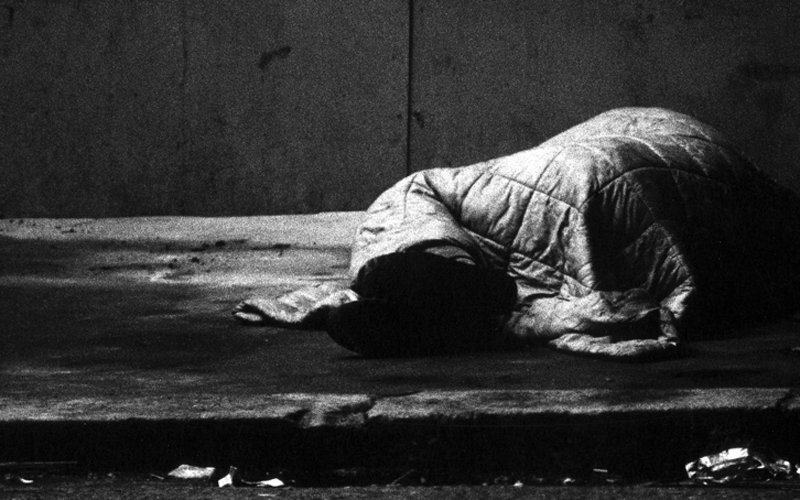
by Andrew Wilkes | Mar 2, 2022 | Headline News |
 During Lent, we commemorate the life, death, and resurrection of Jesus the Christ. As if it were New Year’s Eve, most Christians make a Lenten resolution, consecrate it with prayer, and stick it out until Easter. Our concern for particularity in this moment, while laudable, can prevent us from grasping — and being grasped by — a broader sense of mission. The immediacy of figuring out, “What am I going to give up?” can prevent us from asking, “What sort of person is God calling me to be within the church and the world?” The first question pivots around our personal aspirations; the second one opens up a vista of service and mission. Developing the latter theme, we might approach Lent as an opportunity to embrace the care of Christ and emulate his ministry of coming alongside and caring for the least of these.
During Lent, we commemorate the life, death, and resurrection of Jesus the Christ. As if it were New Year’s Eve, most Christians make a Lenten resolution, consecrate it with prayer, and stick it out until Easter. Our concern for particularity in this moment, while laudable, can prevent us from grasping — and being grasped by — a broader sense of mission. The immediacy of figuring out, “What am I going to give up?” can prevent us from asking, “What sort of person is God calling me to be within the church and the world?” The first question pivots around our personal aspirations; the second one opens up a vista of service and mission. Developing the latter theme, we might approach Lent as an opportunity to embrace the care of Christ and emulate his ministry of coming alongside and caring for the least of these.
Embracing the care of Christ can be painful, for it often requires a prior admission that we are wounded. Many recent college graduates work hard to secure employment and repay loans, only to experience job loss, a reduction of responsibility, or another economic shift causing them to move back in with their parents. They are wounded. Some 222,000 veterans have returned from Iraq to a jobless recovery, a gridlocked Congress, and employers who cannot grasp the relevance of leadership skills honed in a military context. They, too, are wounded.
Our individual ailments differ, but we share an Augustinian solidarity. The bishop of Hippo suggests that we are Good Samaritans, called to love across differences of race, class, religion, and other social realities. Yet we are also recipients of God’s boundary-bursting, Samaritan love — Jesus found us by the side of the road, bandaged our wounds, and nursed us into wholeness by the power of his Holy Spirit.
As a community whose health has been and is being restored, Christ calls us to tend to the social ills of his people and all people. Matthew 25:31-46, in particular, underscores the importance of feeding the hungry, clothing the naked, visiting those who are in prison, and welcoming the stranger.
By caring with and for society’s most vulnerable members — Jesus calls them “the least of these” — we bear witness to the in-breaking of God’s kingdom in Christ. We embody his love by performing acts that immediately address the maladies of drug addiction, domestic violence, and chronic sickness. Moreover, our engagement in intermediate, systems-transforming work on behalf of the least of these — inmates, immigrants, gay and lesbian military personnel, and so on — testifies to the restorative justice of God’s kingdom in Christ.
Such care, whether personal or structural, does not itself build or establish God’s kingdom. To claim that it does collapses human initiative into divine work (making devils out of those who may oppose it for well-argued reasons) and, more dangerously, runs the risk of idolizing the stratification of power that enables such change (e.g., relief and development arms of denominations or national governments become sacrosanct instruments beyond critique). Our individual and collective care for “the least of these” represent necessary and yet feeble attempts to follow in the footsteps of our Lord who prioritized the marginalized in his ministry. Our call is not about politics, not about ideology, but about modeling the love and justice of Christ. Cornel West has famously remarked that, “Justice is what love looks like in public.” What does our Christian faith look like out on the street?
Lent reminds us that the church’s social service and justice-making efforts fall short of God’s glory, that our best attempts to repair the world are still broken, leading us to depend anew on the care of Christ. We are weak, but the consolations of our Lord are strong; through him we discover the strength to love, the power to carry on.
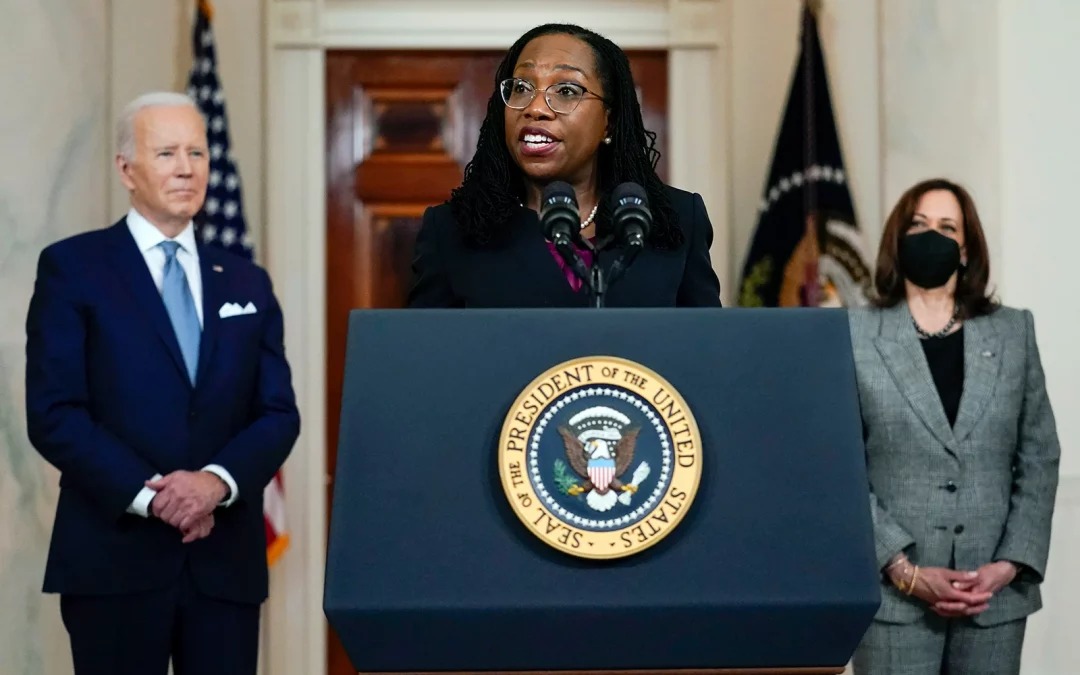
by Allen Reynolds, UrbanFaith Editor | Mar 1, 2022 | Headline News |
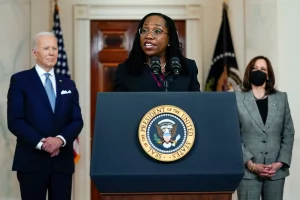
WASHINGTON (RNS) — Immediately after President Joe Biden introduced Judge Ketanji Brown Jackson as his nominee to the U.S. Supreme Court at a White House event on Friday (Feb. 25), the federal appeals court judge stepped up to the podium and appealed to the divine.
“I must begin these very brief remarks by thanking God for delivering me to this point in my professional journey,” she said. “My life has been blessed beyond measure, and I do know that one can only come this far by faith.”
Jackson’s words marked the beginning of what promises to be a historic confirmation process: If approved by the U.S. Senate, Jackson, 51, who currently serves on the D.C. Court of Appeals, would be the first Black woman to serve on the Supreme Court.
“If I’m fortunate enough to be confirmed as the next associate justice of the Supreme Court of the United States, I can only hope that my life and career, my love of this country and the Constitution, and my commitment to upholding the rule of law and the sacred principles upon which this great nation was founded, will inspire future generations of Americans,” she said.
Biden noted the landmark nature of Jackson’s nomination during his introduction, making good on a campaign promise to push for a Black woman on the country’s highest court.
“For too long, our government, our courts, haven’t looked like America,” he said. “I believe it’s time that we have a court that reflects the full talents and greatness of our nation with a nominee of extraordinary qualifications. And that we inspire all young people to believe that they can one day serve their country at the highest level.”
While outlining Jackson’s professional credentials and personal story — such as her two Harvard degrees and family members in law enforcement — Biden argued that she “strives to be fair, to get it right, to do justice.”
If confirmed, Jackson would also be the first federal public defender on the Supreme Court and would bring the total number of women serving on the bench to four — the most in U.S. history.
Jackson did not mention a specific faith tradition in her remarks, so it was not immediately clear whether she would alter the religious makeup of the Supreme Court, which currently consists primarily of Catholic and Jewish justices (Justice Neil Gorsuch was raised Catholic but attended an Episcopal Church in Colorado).
Lawmakers and liberal religious organizations celebrated Jackson’s nomination.
“I applaud the historic nomination of Judge Ketanji Brown Jackson to the Supreme Court. Georgians want a nominee who is fair, qualified, and has a proven record of protecting Americans’ constitutional rights and freedoms. I look forward to reviewing this nomination,” Georgia Sen. Raphael Warnock, himself a pastor, said in a statement.
Longtime racial justice activist the Rev. Al Sharpton, who runs the National Action Network, tweeted out a statement of support for Jackson, calling her “exceptionally well qualified” and possessing the “experience, character, integrity, and dedication to the Constitution and the rule of law to serve on the nation’s highest Court.”
The National Council of Jewish Women also praised Biden’s choice of Jackson.
“As the only national Jewish organization which actively vets and endorses federal judicial nominees, NCJW follows the guidance of our tradition which affirms the importance of having ethical, unbiased judges like Judge Jackson who will fight for justice for everyone each and every day,” the statement read. “Her keen intellect, integrity, background, and lived experience are what we need on the Court.”
Religion has been a point of interest in recent Supreme Court nomination battles, particularly the debate over Justice Amy Coney Barrett. When she was nominated by former President Donald Trump in 2020, many observers questioned whether her conservative brand of Catholic faith would influence how she approached issues such as abortion.
Although Jackson reportedly has not ruled on a case narrowly focused on abortion, her appointment nonetheless drew attention of groups concerned about the issue. Jeanne Mancini, president of March for Life Education and Defense Fund, an anti-abortion group, said in a statement she expects Jackson to be “a reliable vote for the far left and the Biden administration’s radical abortion agenda.”
Meanwhile, Jamie L. Manson, president of Catholics for Choice, which advocates for abortion rights, praised Jackson as a jurist with “a long and distinguished record of legal work and judicial decisions that protect and advance the constitutional rights of marginalized Americans, including women and pregnant people, immigrants, and people with disabilities.”
Manson also made mention of Jackson’s April 2021 Senate confirmation hearing to serve on the U.S. Court of Appeals. Manson said Jackson expressed “a clear and firm commitment to the principle that true religious liberty involves both freedom of and freedom from religion.”
During that hearing, Missouri Republican Sen. Josh Hawley noted Jackson had served on the board of Montrose Christian School. The Maryland school, which has since been closed, operated under a statement of faith that declared “we should speak on behalf of the unborn and contend for the sanctity of all human life from conception to natural death” and outlined a belief that marriage exists only between a man and a woman.
In responding to Hawley, who said he agreed with the statements, Jackson distanced herself from the school’s beliefs. She said she did not “necessarily agree with all of the statements,” and was not previously aware of their existence.
She went on to express support for religious liberty, describing it as a “foundational tenet of our entire government.”
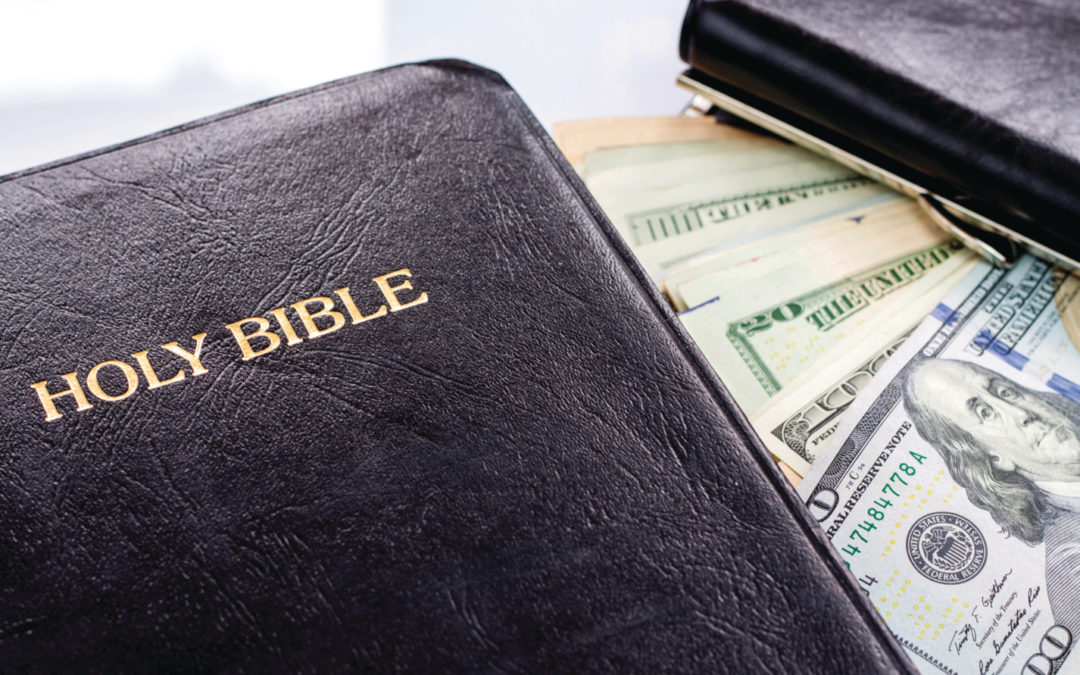
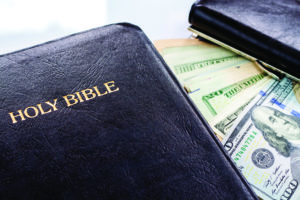







 During
During 
